7 of the most shy dog breeds
4th January, 2024

Did you know that some dog breeds are naturally more shy and timid than others?
These gentle souls may require a little extra love and patience to come out of their shells, understanding their unique needs is essential.
The Greyhound, Beagle, Cavalier King Charles Spaniel, Bichon Frise, Shih Tzu, Basenji, and Whippet are all examples of dog breeds known for their shy and timid nature.
If you're looking for more of a 'beginner' breed or if you'd like a typically less 'boystrous' breed, take a look through some of the shy dog breeds we highlighted in this article to decide which one may be right for you.
Alternatively, if you're deciding between getting a small dog or larger dog breed, take a look at some of our top tips that may help you make a decision!
Need to know
- Shy and timid dog breeds may require extra time to warm up to new people and situations.
- Positive reinforcement training methods work best with these breeds.
- Proper training and socialisation can help them overcome their shyness.
- Gradual exposure to new environments and experiences is important for their socialisation.
Greyhound
If you're looking to adopt or buy a dog that's both shy and timid, you can't go wrong with the Greyhound.
The Greyhound breed is known for its gentle and reserved nature, making it a perfect choice for individuals seeking a calm and low-maintenance companion.
Greyhounds are typically quiet, sensitive, and somewhat aloof, preferring the comfort of familiar surroundings and people they trust.
When it comes to training shy Greyhounds, patience and understanding are key.
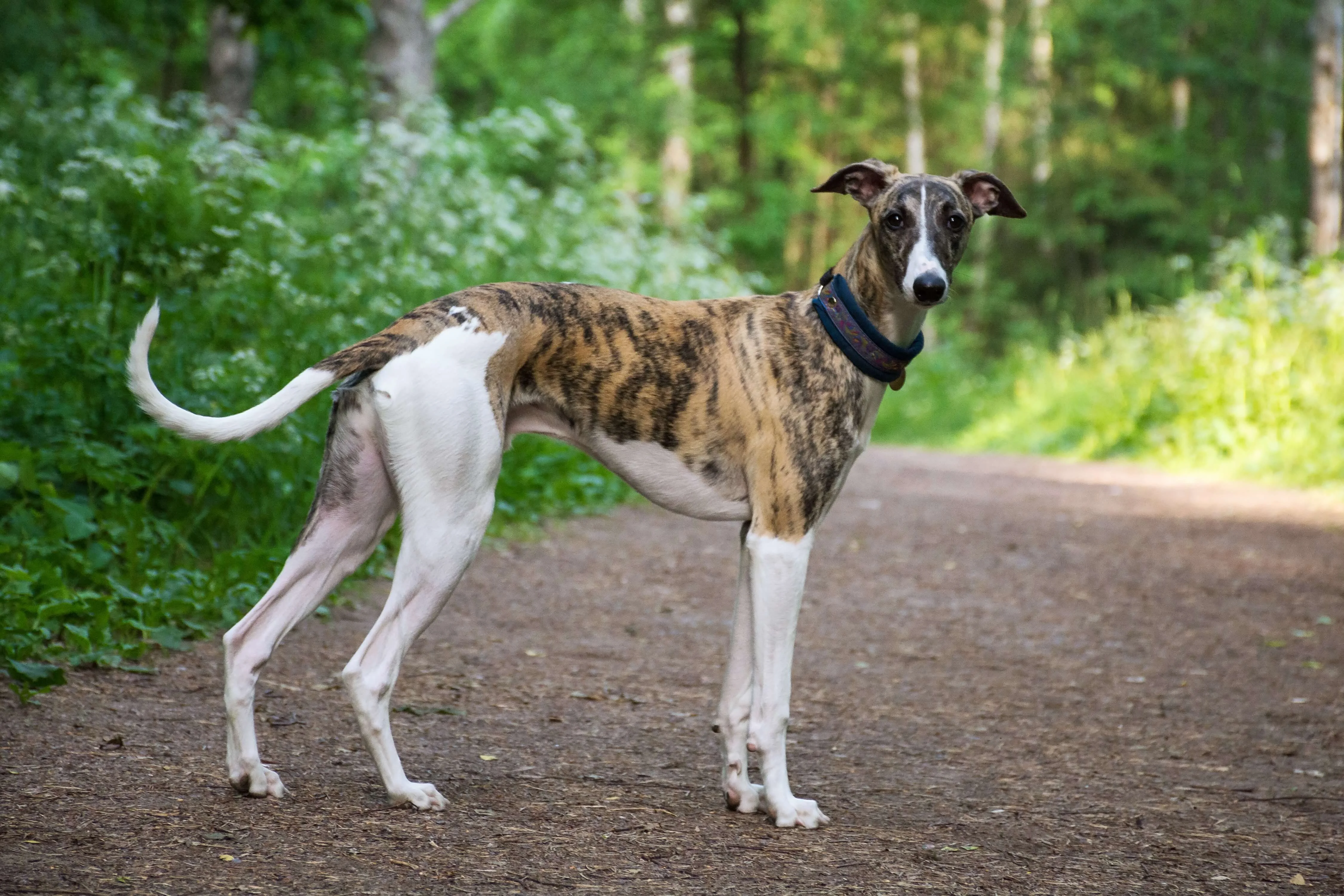
These dogs thrive on routine and consistency, so having more of a regimented training programme can prove to be helpful.
Shy Greyhounds may require extra time to warm up to new people and situations, so it's important to create a safe and supportive environment for them to build trust.
Positive reinforcement training methods may work best with Greyhounds, as they typically respond well to praise and rewards (what dog doesn't?).
Start with basic obedience commands and gradually introduce them to new experiences, without pushing too much, too quickly.
Encourage socialisation with other dogs and people but be mindful of their comfort level and never force them into situations that may overwhelm them.
Beagle
If you're considering getting a Beagle, it's important to be aware of their timid nature.
Beagles tend to be on the shy side, and this can manifest in various ways, such as being hesitant around strangers or new environments.
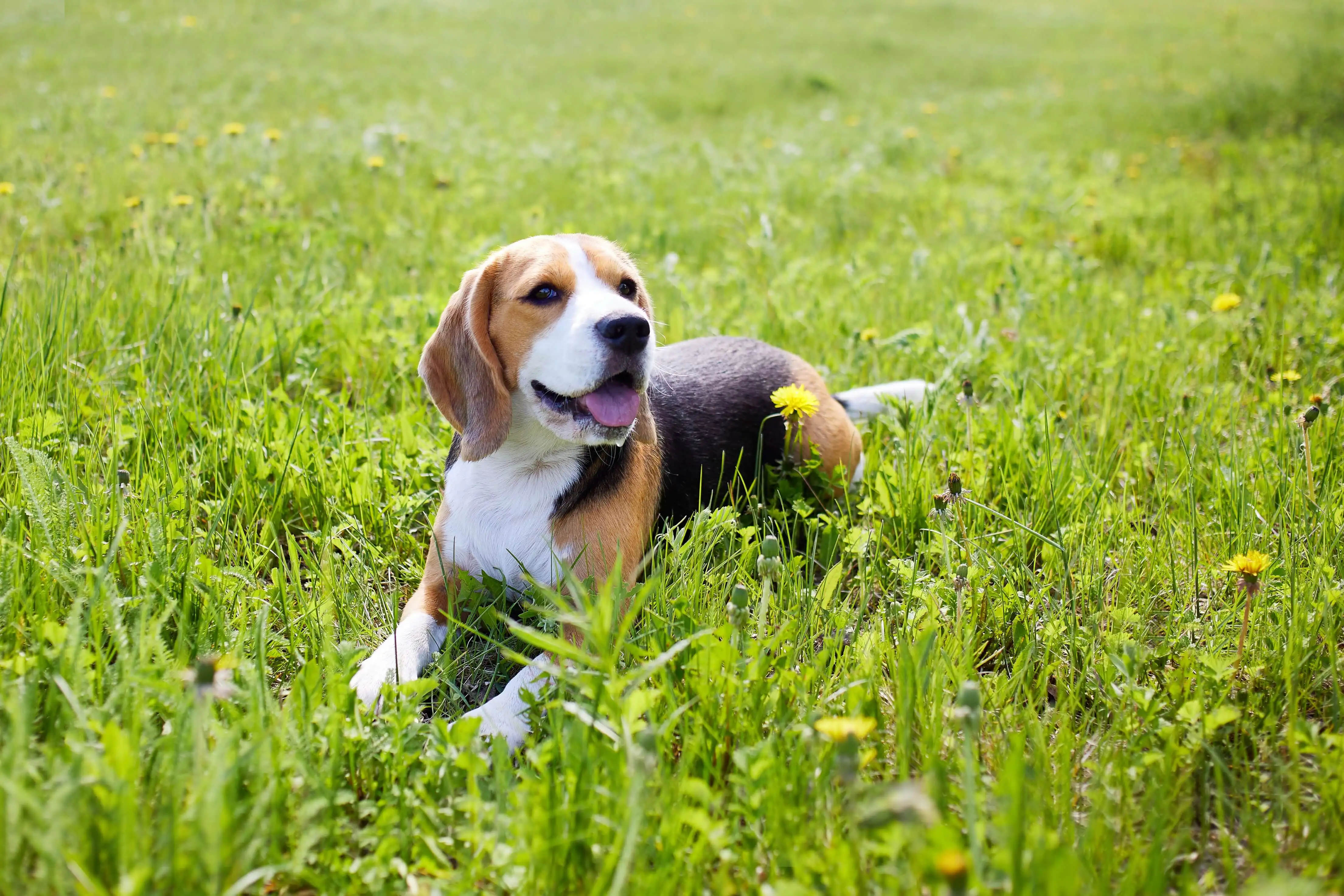
With proper training and socialisation, Beagles can become outgoing and cope with 'stressful' situations a bit easier.
Beagle's timid nature
When it comes to the Beagle breed, you'll find that they can be quite timid in certain situations.
However, with the right approach and training, you can help your shy Beagle overcome their shyness and become more confident. Here are four key factors to consider when training a shy Beagle:
- Positive reinforcement: Use treats, praise, and rewards to encourage your Beagle's desired behaviours. This will help build trust and a bit more confidence in you.
- Gradual exposure: Introduce your Beagle to new environments, people, and experiences slowly and gradually. This will help with them adjusting at their own pace.
- Socialisation: Regularly expose your Beagle to other dogs and people in a controlled and positive manner, helping them settle into social situations.
- Patience and consistency: Training a shy Beagle requires patience and consistency. Be understanding of their fears and provide a safe and supportive environment for them to grow and overcome their shyness.
Overcoming shyness in Beagles
To help your Beagle overcome their shyness, it is important to provide them with consistent socialisation and positive reinforcement.
Shyness in Beagles can stem from various root causes, such as genetics, lack of early socialisation, or traumatic experiences.
Understanding these causes can help you tailor your approach to building your Beagle's confidence.
Here are some tips for building confidence in shy Beagles:
Tips for building confidence in shy beagles |
Understanding the root causes of shyness in beagles |
| Gradually expose your Beagle to new experiences and environments | Genetics may play a role in shyness, so be patient and understanding |
| Use positive reinforcement, such as treats and praise, to reward your Beagle's brave behaviour | Lack of socialisation during the puppy years can contribute to shyness |
| Enrol your Beagle in obedience training classes to boost their confidence and social skills | Traumatic experiences, such as abuse or neglect, can lead to shyness |
Cavalier King Charles Spaniel
With their small size, gentle nature, and affectionate personality, owning a Cavalier King Charles Spaniel is like having a loyal companion by your side all the time.
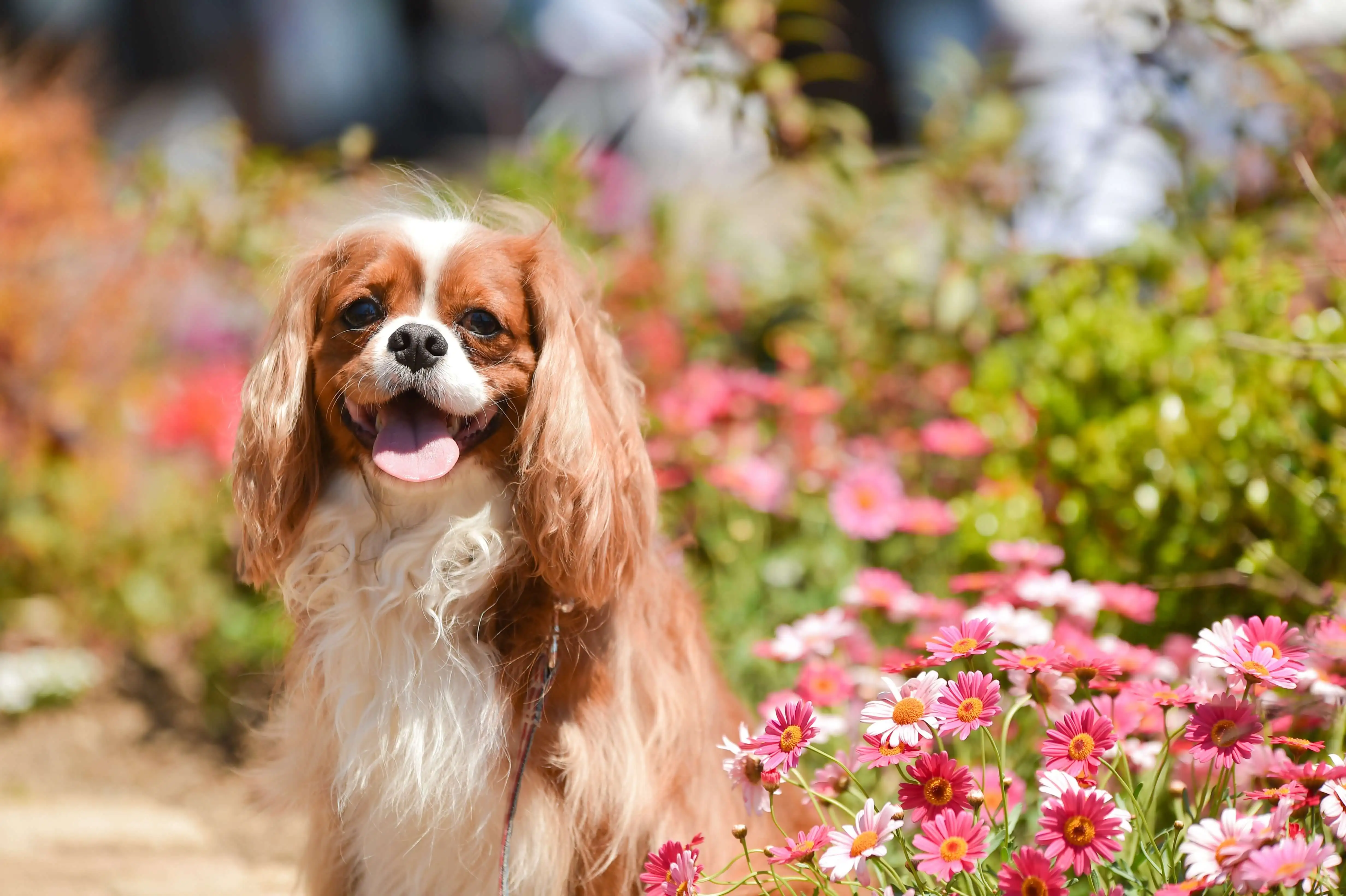
These adorable dogs are known for being one of the most shy and timid breeds out there. Here are four key characteristics that paint a picture of what it's like to have a Cavalier King Charles Spaniel as your furry friend:
- Reserved demeanour: Cavaliers are typically reserved around strangers and may take some time to warm up to new people. They tend to prefer the company of their trusted family members and may become anxious or shy in unfamiliar situations.
- Sensitive souls: These dogs have a sensitive nature, which means they can be easily affected by loud noises or sudden changes in their environment. It's important for owners to create a calm and stable environment for them to thrive.
- Velcro dogs: Cavaliers are often referred to as 'velcro dogs' because they love to be close to their owners. They crave attention, affection, and physical contact, seeking comfort in the presence of their loved ones.
- Emotional intelligence: Despite their shyness, Cavaliers have an incredible ability to empathise with their owners' emotions. They can sense when you're feeling down or stressed and will do their best to provide comfort and support. If you're looking for a gentle and loyal companion who'll always be by your side, the Cavalier King Charles Spaniel may be the perfect breed for you. Though they may be shy at times, their loving nature and unwavering loyalty make them an excellent choice for those seeking a devoted and caring canine companion.
Bichon Frise
When it comes to Bichon Frises, their temperament is often described as shy and timid.
These dogs can be easily overwhelmed in new situations and may take time to warm up to strangers.
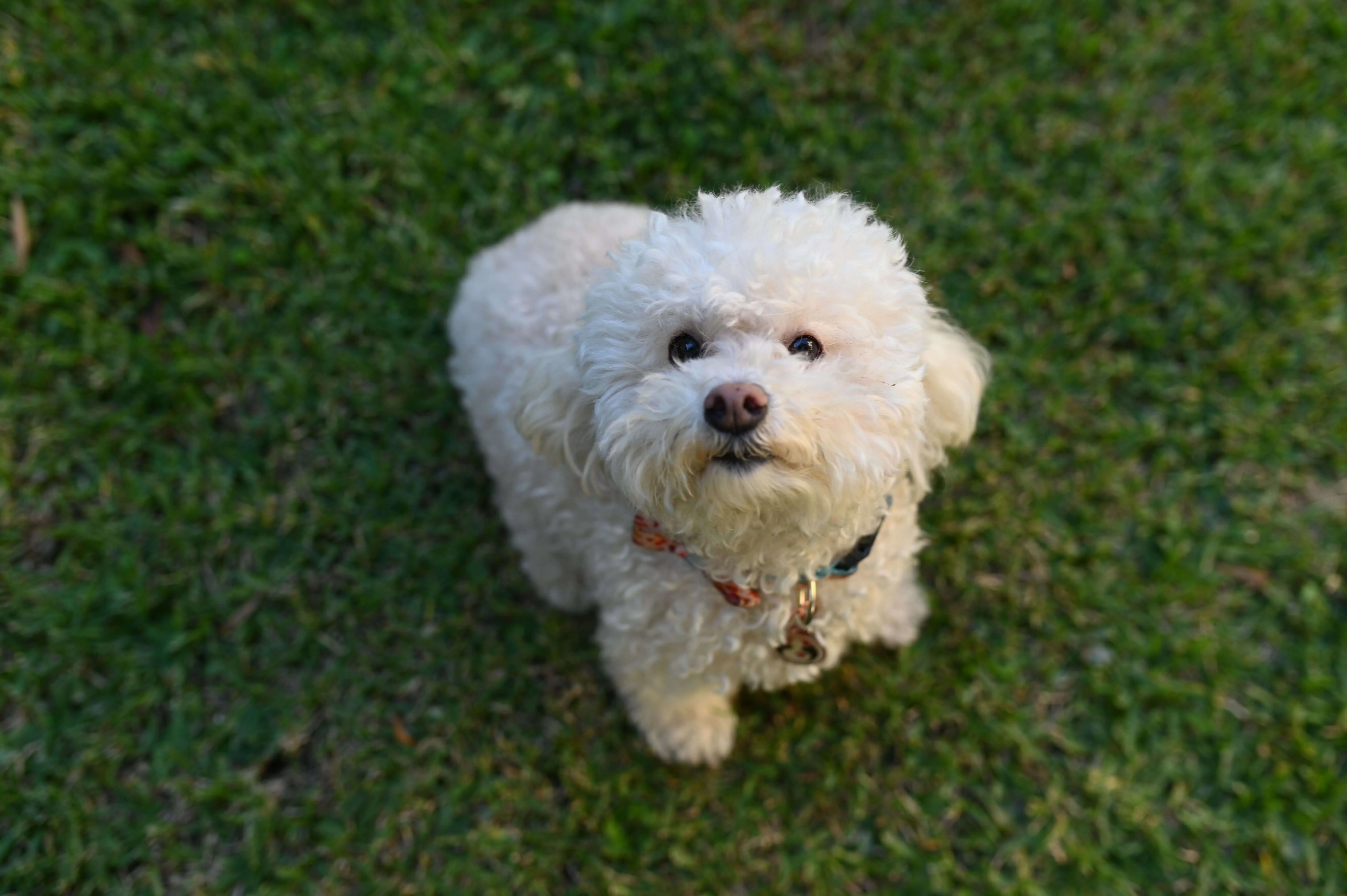
However, with proper socialisation and training, Bichon Frises can overcome their shyness and become confident and outgoing.
Bichon Frise temperament
If you're considering a Bichon Frise as a pet, you can expect a temperament characterised by friendliness and affection. Here are a few key aspects of their temperament:
- Social butterflies: Bichon Frises love being around people and other animals. They thrive on social interaction and enjoy being the centre of attention.
- Playful and energetic: These dogs have a playful and energetic nature. They love engaging in activities and games that keep them mentally and physically stimulated.
- Easy to train: Bichon Frises are known for their intelligence and eagerness to please. With consistent and positive reinforcement, they can excel in obedience training and learning new tricks.
- Alert and curious: These dogs have a curious nature and are always on the lookout for new experiences. They're alert and make excellent watchdogs, as they'll bark to alert you of any potential threats. Understanding the Bichon Frise temperament is crucial for successful Bichon Frise training and managing their behaviour.
Now, let's explore how to overcome shyness in Bichons.
Overcoming shyness in Bichons
To help your shy Bichon Frise become more confident and outgoing, you can take a few simple steps.
Socialising shy dogs and building their confidence is essential for their overall well-being. Here are some strategies you can implement:
Description |
Tips |
|
Gradual Exposure |
Introduce your Bichon Frise to new people, environments, and situations gradually. Start with low-pressure situations and gradually increase the level of stimuli. |
|
Positive Reinforcement |
Reward your dog with treats, praise, and affection whenever they display confident behaviours. This will help them associate positive experiences with new situations. |
|
Training Classes |
Enrol your Bichon Frise in obedience classes or socialisation groups. These classes provide structured environments for your dog to interact with other dogs and people. |
|
Consistency |
Maintain a consistent routine and provide a calm and stable environment for your Bichon Frise. This will help them feel secure and build their confidence over time. |
|
Patience and Understanding |
Be patient with your shy dog. Understand that building confidence takes time and effort. Provide a safe and loving environment where they can gradually overcome their shyness. |
Socialising your Bichon Frise
To socialise your Bichon Frise, it's important to introduce them to new people, environments, and situations gradually. Here are some training techniques for shy dogs like the Bichon Frise:
- Start with familiar faces: Begin socialising your Bichon Frise by introducing them to close family members and friends who can provide a calm and positive environment.
- Positive reinforcement: Use treats, praise, and rewards to encourage your Bichon Frise to approach and interact with new people and situations.
- Controlled exposure: Gradually expose your Bichon Frise to different environments and situations, such as walks in the park or visits to pet-friendly stores, ensuring they feel safe and comfortable throughout the process.
- Professional help: Consider seeking assistance from a professional dog trainer or behaviourist who specialises in socialising shy dogs. They can provide guidance and personalised training techniques to help your Bichon Frise overcome their shyness. By following these training techniques, you can help your Bichon Frise become more confident and sociable.
Shih Tzu
One of the most timid dog breeds is the Shih Tzu, known for their gentle and reserved nature.
Shih Tzus can be naturally shy, which can make it challenging for them to socialise and interact with new people and other animals.
However, with the right training techniques, it's possible to help shy Shih Tzus overcome their shyness and become more confident and outgoing.
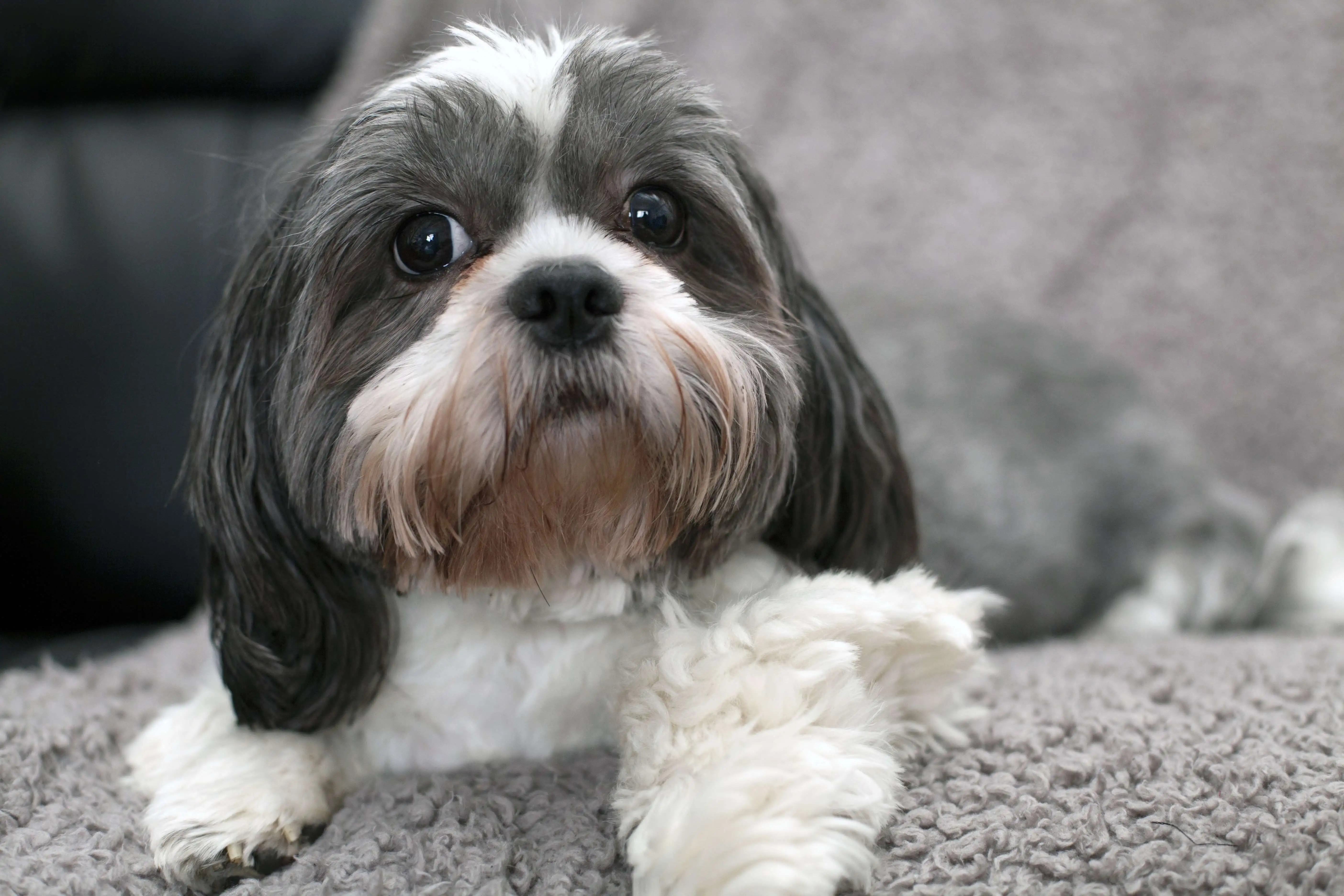
One effective way to help shy Shih Tzus overcome their shyness is through gradual exposure to different environments, sounds, and situations.
Start by introducing them to new people and animals in a controlled and calm environment.
Slowly increase the level of exposure over time, allowing them to become familiar with different stimuli at their own pace. Positive reinforcement training can also be beneficial for shy Shih Tzus.
Rewarding them with treats, praise, and affection when they display confident and outgoing behaviour can help boost their confidence and encourage them to come out of their shell.
Remember to be patient and understanding with your shy Shih Tzu.
Building trust and providing a safe and secure environment is crucial for their development. With consistent training and plenty of love and support, shy Shih Tzus can gradually overcome their shyness and become more social and outgoing.
Basenji
The Basenji is a reserved and timid dog breed. If you have a Basenji or are considering getting one, it's important to understand their shy nature and how to properly socialise them.

Here are four key points to consider when dealing with shy Basenjis:
- Early socialisation is crucial: Start socialising your Basenji from a young age. Expose them to different people, animals, and environments to help them feel more comfortable and confident in unfamiliar situations.
- Patience and gentle encouragement: Shy dogs like the Basenji need time to warm up to new people and experiences. Be patient and understanding and avoid forcing them into situations that might overwhelm them. Instead, use positive reinforcement and gentle encouragement to help them overcome their fears.
- Gradual exposure: Introduce your Basenji to new experiences gradually. Start with low-stress situations and slowly increase the level of challenge as they become more comfortable. This will help build their confidence and reduce anxiety.
- Seek professional help if needed: If your Basenji's shyness is severe and impacting their quality of life, consider consulting a professional dog trainer or behaviourist who specialises in working with timid dogs. They can provide guidance and techniques to help your Basenji overcome their fear.
Understanding the shy nature of Basenjis and taking the necessary steps to socialise and help them overcome their fears will lead to a happier and more confident dog.
Whippet
If you're considering a Whippet, you'll find that this breed is known for its reserved and timid nature.
Whippets are gentle and sensitive dogs, often taking time to warm up to new people and situations. When it comes to training shy Whippets, patience and positive reinforcement are key.
Start with basic obedience commands, using rewards such as treats or praise to motivate your Whippet. Consistency is important, as these dogs thrive on routine and structure.
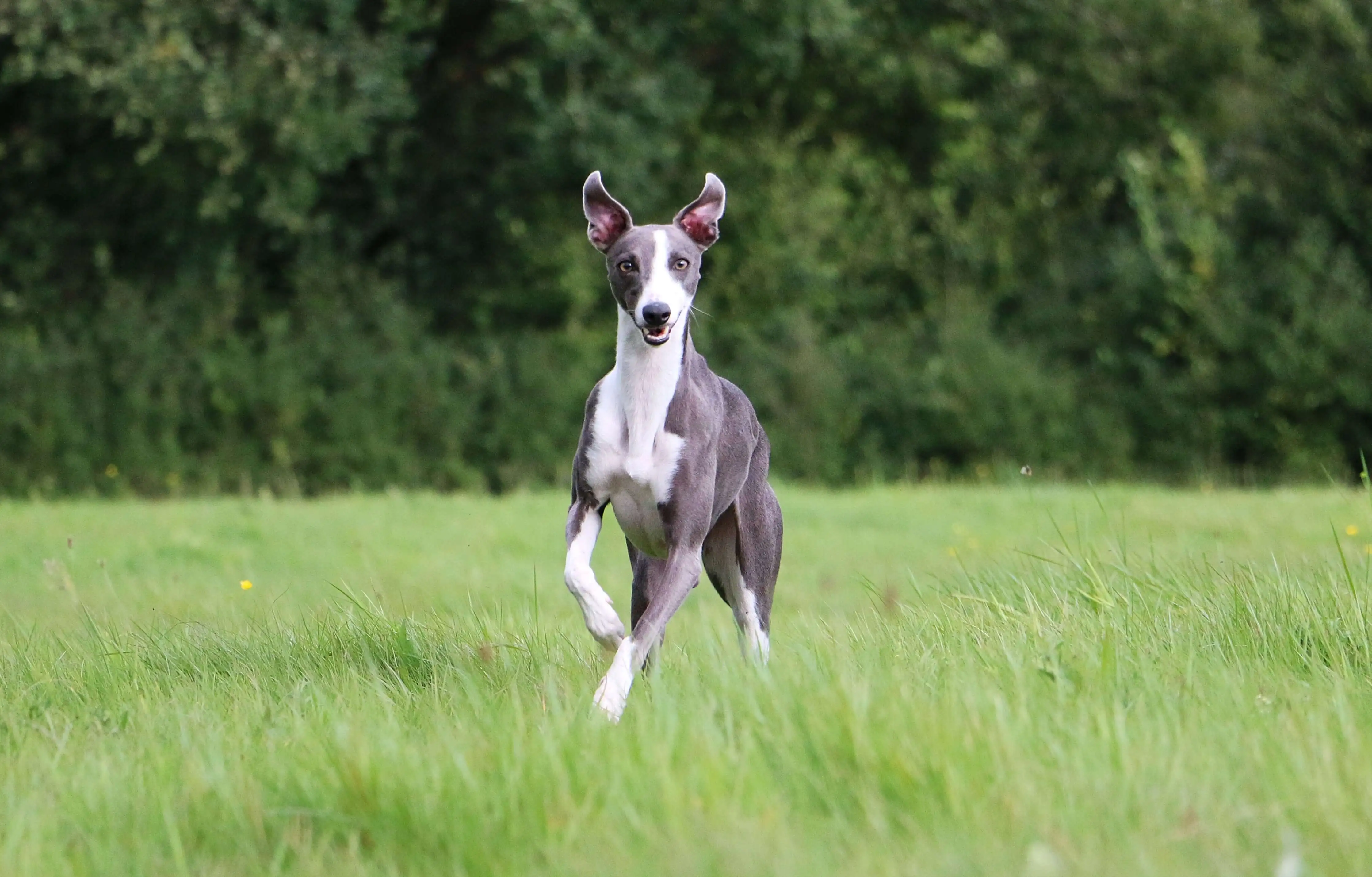
Gradually expose your Whippet to new environments and experiences, ensuring that they feel safe and supported throughout the process.
Socialisation is crucial for shy Whippets, as it helps them build confidence and trust in unfamiliar situations. Introduce your Whippet to other dogs and people gradually, in controlled and positive environments.
This will help them develop better social skills and decrease their anxiety.
When it comes to activities, Whippets often enjoy low-key and peaceful outings.
Long walks or hikes in quiet areas can provide mental stimulation while allowing them to feel secure.
Engaging in activities such as obedience training, puzzle toys, or even scent work can also help boost their confidence and keep them mentally stimulated.
Take a look at some of the more common health problems Whippets suffer from here.
Frequently Asked Questions
1. Why is my dog so shy and timid?
Shyness in dogs can stem from various factors such as genetics, lack of early socialisation, or past traumatic experiences. Understanding these causes can help you tailor your approach to building your dog's confidence.
2. Are some dogs just naturally shy?
Yes, some dog breeds like the Greyhound, Beagle, and Cavalier King Charles Spaniel are naturally more reserved and may require extra time and patience to come out of their shells.
3. Can a shy dog be aggressive?
While it is less common, a shy dog can exhibit aggressive behaviour if they feel threatened or cornered. It's important to provide a safe, supportive environment for them and use positive reinforcement methods for training.
4. What is the body language of a shy dog?
Shy dogs may display body language such as lowered ears, tucked tail, avoidance of eye contact, and submissive urination. It's important to recognise these signs and respond in a patient, understanding manner.
After exploring the world of shy and timid dog breeds, it's clear that these sweet gentle souls possess a unique charm.
From the graceful Greyhound to the endearing Bichon Frise, each breed brings its own set of quirks and qualities.
Like delicate flowers in a garden, these dogs require patience and understanding to bloom into their true selves.
So, if you're looking for a loyal companion who'll appreciate your gentle touch and offer you a lifetime of unconditional love, consider welcoming one of these timid breeds into your home.
Helpful Pages
Recent Posts
Pet Insurance Quote
- 98% claims paid *
- Claims paid directly to vets
- 24/7 vet video consultations
- Interest free monthly payments




